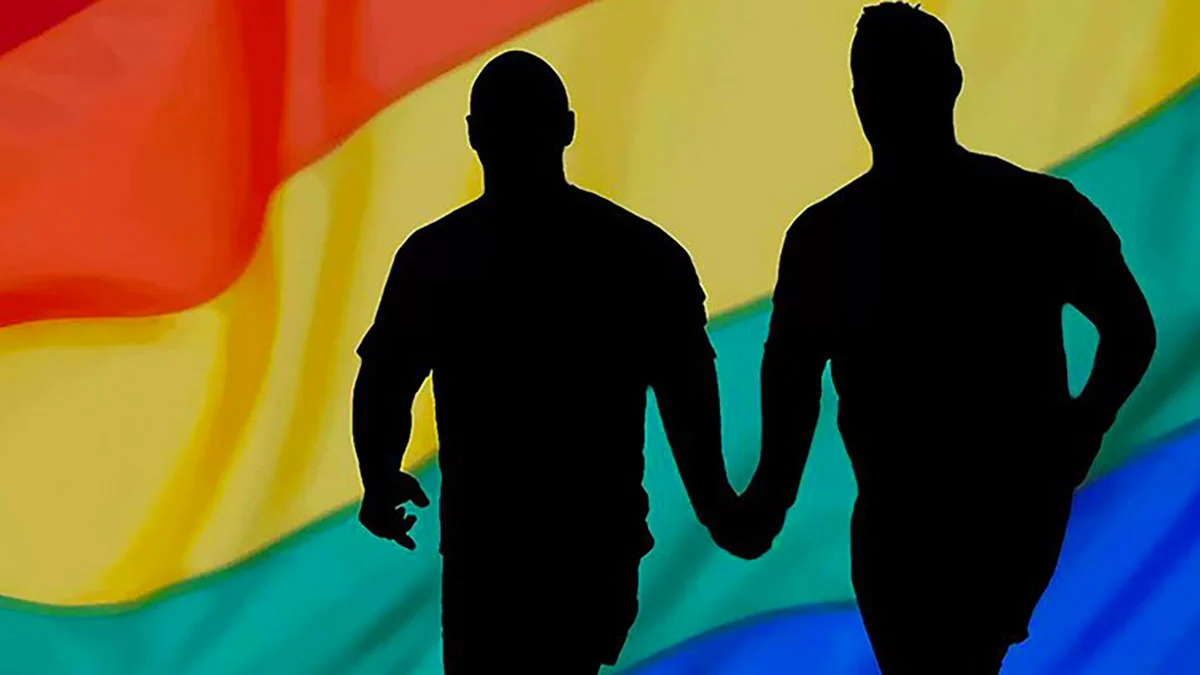
Cameroon: Wave of Arrests, Abuse Against LGBT People
Repeal Law, Protect LGBT Rights
Cameroonian security forces have arbitrarily arrested, beaten, or threatened at least 24 people, including a 17-year-old boy, for alleged consensual same-sex conduct or gender nonconformity, since February 2021, Human Rights Watch said >today. At least one of them was forced to undergo an HIV test and anal examination.
Based on Human Rights Watch’s monitoring and discussions with Cameroonian nongovernmental organisations, the recent accounts of abuse documented here seem to be part of an overall uptick in police action against lesbian, gay, bisexual and transgender (LGBT) people in Cameroon. Sexual relations between people of the same sex are criminalised in Cameroon and punished with up to five years in prison.
«These recent arrests and abuses raise serious concerns about a new upsurge in anti-LGBT persecution in Cameroon», said Neela Ghoshal, associate LGBT rights director at Human Rights Watch. «The law criminalising same-sex conduct puts LGBT people at a heightened risk of being mistreated, tortured, and assaulted without any consequences for the abusers».
Between February 17 and April 8, Human Rights Watch interviewed by telephone 18 people, including 5 who had been detained, 3 lawyers, and 10 members of Cameroonian LGBT nongovernmental organisations. Human Rights Watch also reviewed reports by Cameroonian and international LGBT organisations, court documents, police reports, and medical records.
Human Rights Watch shared its findings with the justice minister, Laurent Esso; the state secretary at the Defense Ministry in charge of the national gendarmerie, Yves Landry Etoga; and the delegate general for national security, Martin Mbarga Nguele, in a March 25 letter, requesting answers to specific questions. Cameroonian officials have yet to respond.
On February 24, police officers raided the office of Colibri, an organisation that provides HIV prevention and treatment services, in Bafoussam, West Region, and arrested 13 people on homosexuality charges, including 7 Colibri staff. The police released all 13 people on February 26 and 27. Three of those arrested said that police beat at least three Colibri staff members at the police station and that the police threatened and verbally assaulted all those arrested. They also said that the police interrogated them without the presence of a lawyer and forced them to sign statements they were not allowed to read.
One of them, a 22-year-old transgender woman, said: «Police told us we are devils, not humans, not normal. They beat a trans woman in the face, slapped her twice in front of me».
Police also forced one of the 13 arrested, a 26-year-old transgender woman, to undergo an HIV test and anal examination at a health centre in Bafoussam on February 25. She told Human Rights Watch: «The doctor was embarrassed but said he had to do the examination because the prosecutor needed it. He carried out the examination. I had to bend over. The doctor wore gloves and put in his finger. It was the most humiliating thing I’ve ever experienced».
What this transgender woman experienced is not an isolated case. Human Rights Watch has previously documented that prosecutors in Cameroon have introduced medical reports based on forced anal exams into court, contributing to convictions of individuals charged with consensual homosexual conduct.
Human Rights Watch documented two additional arrests in 2021 and one mass arrest in 2020. In Bertoua, on February 14, gendarmes arrested 12 youth, including at least 1 teenager, on homosexuality charges and subjected them to ill-treatment before releasing them the same day. On February 8, gendarmes arbitrarily arrested two transgender women in Douala, targeting them in the street on the basis of their gender expression. Prosecutors charged them with homosexual conduct, lack of identity cards, and public indecency.
«It is not illegal to be homosexual or transgender», said Cameroonian lawyer Alice Nkom. «According to Cameroonian law, it is the act which is the crime. So, this is a blatant human rights violation. They should be released immediately».
In May 2020, police arrested 53 people, most of them LGBT, at a gathering hosted by an HIV organisation in a hotel in Bafoussam and charged them with «homosexuality» related offences. At least 6, including 3 teenagers ages 15 to 17, were subjected to forced anal examinations and HIV tests.
The African Charter on Human and People’s Rights guarantees the right to equal protection before the law and nondiscrimination. The African Commission on Human and Peoples’ Rights, the body charged with monitoring states parties’ compliance with the African Charter, has said that equal protection extends to sexual orientation. It has also stated that the principle of nondiscrimination, including on the grounds of sexual orientation, is the foundation for the enjoyment of all human rights. The commission has called for African governments to end all forms of violence and discrimination on the basis of sexual orientation and gender identity and to bring the abusers to justice.
The International Covenant on Civil and Political Rights (ICCPR), to which Cameroon is a state party, provides for equal protection, nondiscrimination, and the right to privacy. On this basis, the United Nations Human Rights Committee has ruled that the criminalisation of consensual same-sex conduct between adults violates the ICCPR.
Forced anal exams constitute a form of cruel, inhuman, and degrading treatment that can, in some cases, rise to the level of torture. In November 2013, Dr. Guy Sandjon, president of the National Medical Council of Cameroon, told Human Rights Watch that Cameroonian doctors should not conduct the exams, as they violate medical ethics, and that the authorities should not order them. Involuntary HIV and sexually transmitted infection tests constitute a violation of the right to bodily integrity and privacy, protected under the ICCPR, and the right to health under the International Covenant on Economic, Social and Cultural Rights.
«The Cameroonian government has an obligation to uphold the rights of everyone in Cameroon, regardless of their real or perceived sexual orientation and gender identit», Ghoshal said. «The authorities should immediately end arbitrary arrests on the basis of sexual identity and forced anal examinations and should take swift steps to repeal the law criminalising consensual same-sex relations».







